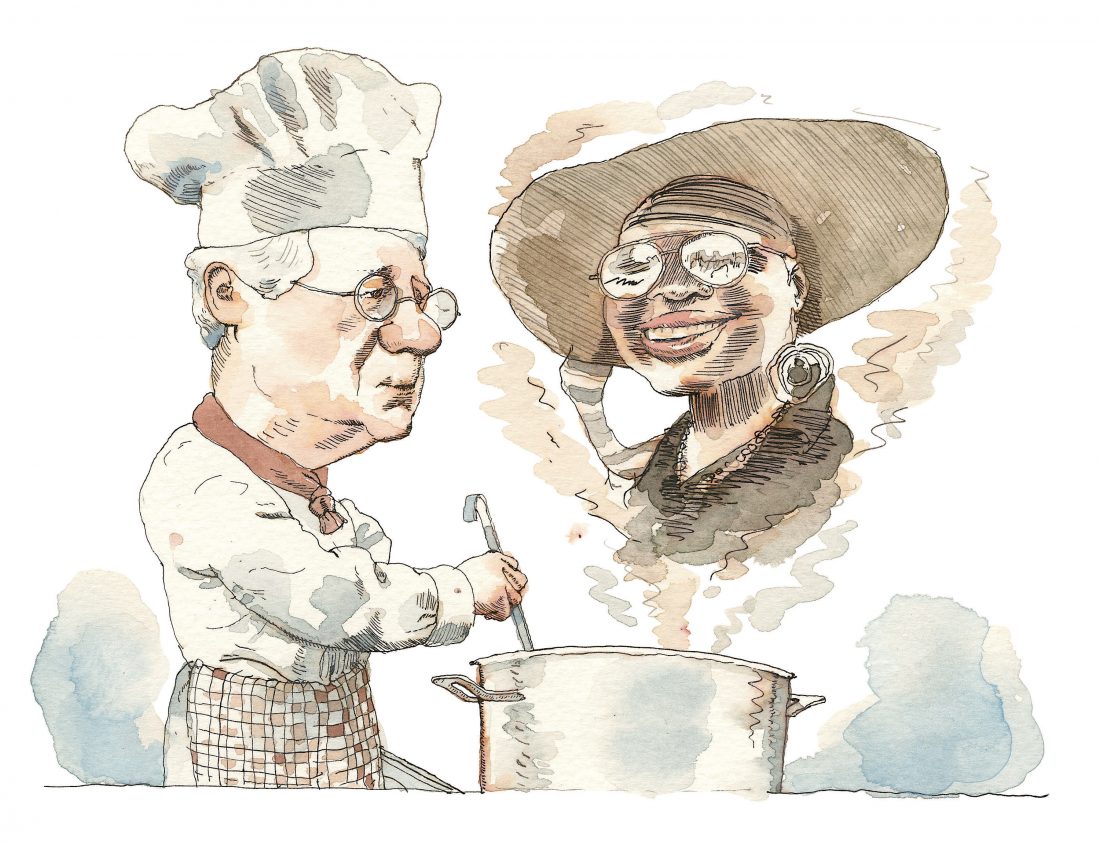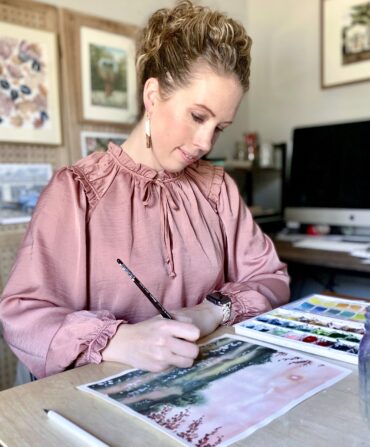I was thinking about writing a great column about the seasonal luckiness of black-eyed peas, when I logged on to the New York Times and found, regrettably, an obituary of Vertamae Smart-Grosvenor. I knew her a little bit, and loved her work. She dispensed spirited cultural wisdom on National Public Radio for thirty years, sang cutting-edge backup for Sun Ra, and told her life story in Vibration Cooking: or, the Travel Notes of a Geechee Girl. “In a 1981 interview with the New York Times,” I learned from the obituary, she told a story from her days on the Left Bank of Paris: “her exhausting but ultimately successful search in 1959 for the ingredients for a proper down-home New Year’s meal: black-eyed peas (essential for good luck …”
With a few clicks I brought up that “interview”—actually something Ms. Smart-Grosvenor wrote for the Times. It’s greater than this black-eyed peas column will be. After another couple of clicks, I discovered that she had gotten away with writing for the Times about that same search for black-eyed peas in Paris twice, the first time in 1977.
You go, Vertamae.
And I thought, how lucky we are to have the Internet. Not many years ago, to track that black-eyed pea story down, I would’ve had to drive to an actual brick-and-mortar library and literally scroll through a lot of microfilm. And you know what, Vertamae was from South Carolina, and the family that owns the New York Times has Chattanooga roots, and Al Gore of Tennessee was (don’t laugh) instrumental in getting the Internet started up. Although I was up in Massachusetts at the moment, I was just rolling in Southern culture, happy as a dog in something richly odorous.
And of course why has the world been so lucky as to have the Internet? Well, Southerners have been eating lucky black-eyed peas for a lot of New Year’ses. And do you know who originated that tradition? According to a story from the Longview (Texas) News-Journal, which I found with another click or two, it was Rip Torn’s father. In 1937. When he was working for the East Texas (or it may have been the Henderson County) Chamber of Commerce, trying to publicize local products. (“At the time he was hired on,” according to a column by Charley Eckhardt on TexasEscapes.com, “there wasn’t much to promote in Henderson County.”)
Rip Torn is of course the great character actor, born Elmore Torn, Jr., in Temple, Texas, who has appeared vividly in such Southern-based movies as Baby Doll, Sweet Bird of Youth, Cross Creek, and Payday. You may well question that Elmore Sr. deserves sole credit for inventing the notion of lucky black-eyed peas on New Year’s, inasmuch as various food historians trace notions of luck and resilience in black-eyed peas back to the antebellum South and to Africa before that.
But you don’t have to trust just Texans. The aforementioned New York Times picked up an obit from the Associated Press in 1971: “Mr. Torn was known for having started the custom of eating black-eyed peas on New Year’s Day.”
I didn’t do all my research on the Web. I got hungry after reading Vertamae’s Paris recollection: “I asked the black American cafe society folks if they knew where I could get some black-eyed peas. Well, you would have thought I had asked them to hucklebuck in Notre Dame, so uppity they were.…Off I went from rue to rue…I decided…I would find some peas or jump in the Seine. A few minutes before I thought I would have to jump, voila! in the shadow of the Louvre I found them. I didn’t bother to ask what they were called in French; I just screamed, ‘Give me some.’”
In her honor, I scoured western Massachusetts till I found a $6.95 ham hock at a fancy boucherie, and cooked some black-eyed peas. Well, yes they were good. I didn’t make hoppin’ John, though. To me, rice blands out the peas. Instead, considering how gray black-eyed pea gravy is, I wondered, what’s something else grayish that would go good in there? I cut some baby bella mushrooms into chunks. Folks, that is a good combination.
I invented it. I am from Georgia. I’m calling it Chirping Jimmy, after our cat Jimmy, who, when so disposed, makes a little chirping noise, ptrrp, when you walk past him without saying hello. He is from Louisiana.








